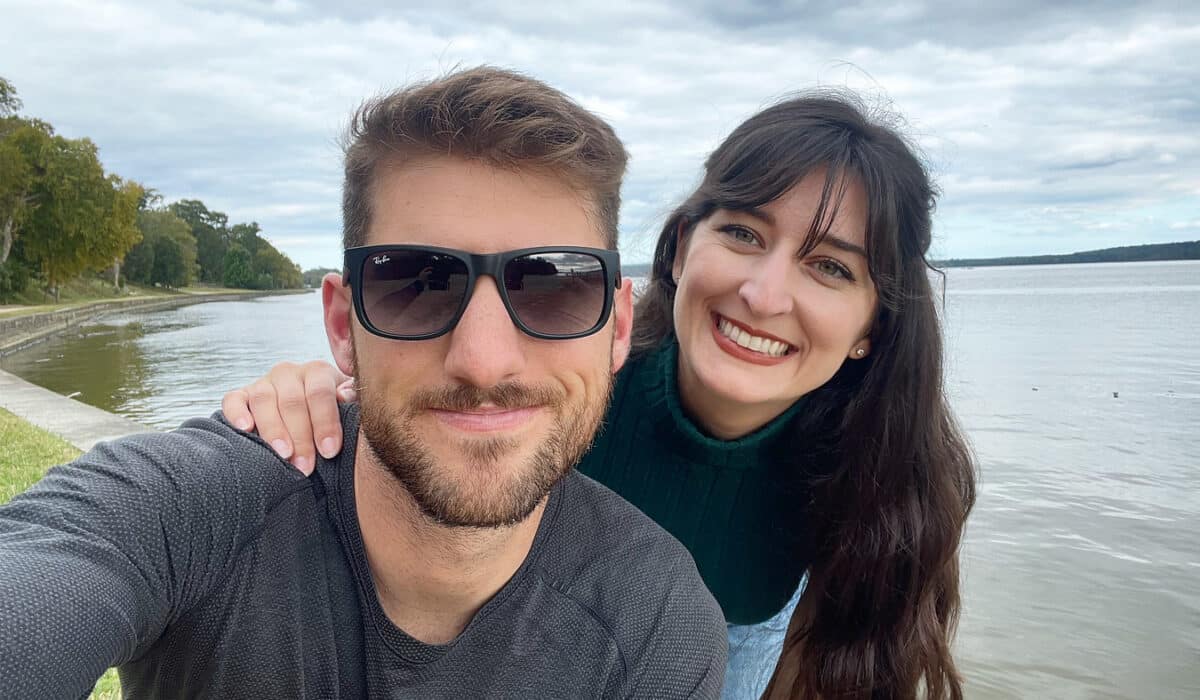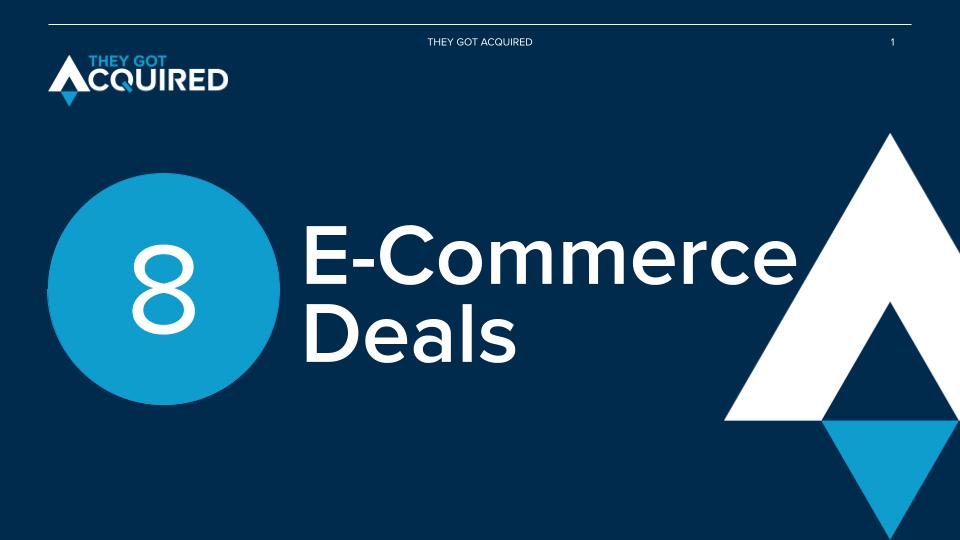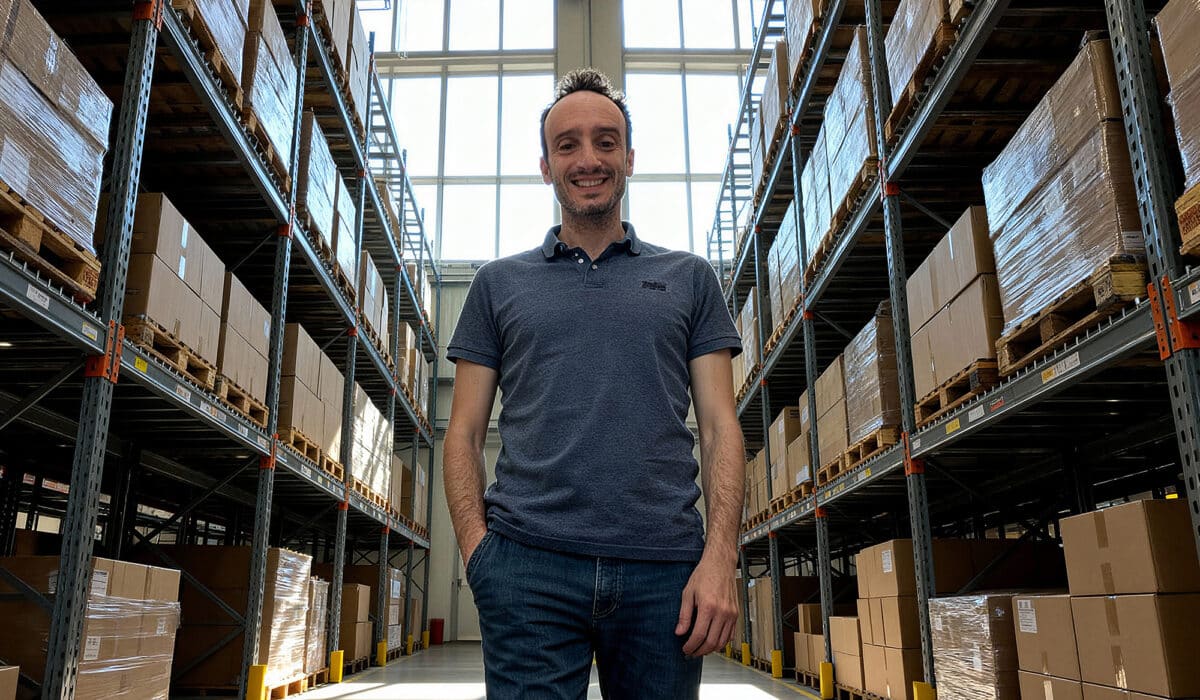First Landings founder Danny Vivier wasn’t yet a parent when he made his foray into the baby product niche. It was 2018, and he was looking to launch a side hustle selling something on Amazon. The “what” was TBD.
He wanted a product with evergreen demand, and customers who were always willing to spend. Babies fit the bill.
Vivier spent a couple of hours doing keyword research using Helium10, a tool for Amazon sellers. He discovered that parents searched for “newborn photography props” more than 20,000 times a month on Amazon. He scoped out the competition and ordered a set of newborn posing pillows.
“The material was very rough,” Vivier said in an interview with They Got Acquired. “The packaging was like a bag. The note was in broken English, and it was really unprofessional. But it was still selling 20 to 30 units a day.”
The concept of First Landings was born. In the next three-plus years, the company would sell $3.5 million worth of newborn photography props before Vivier and his co-founder and wife, Ashley Vivier, sold to an undisclosed Amazon aggregator for more than $2 million in 2022.
Vivier set out to overhaul the product with new packaging, material and sizing. He found textile suppliers through Alibaba and created a brand using 99designs. He launched in October 2018, six weeks after sending $7,500 via an international wire transfer for his first 1,000 units of product.
Five sales a day quickly ballooned into 40. By December, they’d sold out.
Over three years, the company expanded beyond newborn photography pillows, adding 12 new products and 24 stock-keeping units (SKUs). Eventually, it sold an array of wraps for swaddling newborns, baby beanie hats and other accessories for newborn photos. Toward the end, First Landings ventured beyond photography props into general baby products, like mobiles for cribs and diaper-changing pads, and were selling about 200 items/day, or 75,000/year.
“You just need to find one boring thing a small group of people is willing to pay for,” Vivier wrote in a March 9 Twitter thread. “And then execute that one thing 10x better than anyone else.”
How Vivier built First Landings without quitting his day job
The entire time Vivier was building the business, he was working 40-plus hours a week in his day job. He was vice president of strategic finance at TrueCar Inc., then became head of investor relations at LegalZoom, according to his LinkedIn profile.
To make it all work, he put strong systems in place and delegated tasks to the three virtual assistants the company had at its peak. Vivier could focus on growth, primarily by adding new products, while the virtual assistants handled day-to-day operations. Ashley Vivier, an attorney by day, consulted on design choices and how to position the brand.
Balancing a full-time job with running a business got easier over time. But by 2021, Vivier was ready to sell for several reasons.
He knew mounting supply-chain issues could hurt his profitability in the short term. Also, in 2021, Amazon aggregators — which acquire smaller brands like First Landings and consolidate them — were raising enormous amounts of money. Because of market changes from the pandemic, including an increase in shopping online, aggregators raised roughly $12.3 billion in 2021, before plummeting 80% in 2022, according to the Marketplace Pulse Year in Review 2022 report.
Another reason for selling: E-commerce businesses tend to be capital-intensive. That meant the Viviers constantly pumped money into the business. Much of their wealth was concentrated in the business: They had about $400,000 of inventory on the books by the time they sold. The business was also 90% dependent on Amazon for revenue.
By then, First Landings was earning roughly $2.5 million in annual revenue. Vivier felt confident he could land a deal that would allow him to leave corporate life behind.
“It grew way faster than I thought it would,” Vivier told They Got Acquired. “It got bigger than I ever intended it to be. I started to appreciate the challenges that come with this specific business model, and I felt that there were other business models that would be better longer term.”
Negotiating a 7-figure exit
Vivier reached out to 30 Amazon aggregators and received bids from five. Then another aggregator approached him late in the process. He was able to use the other bids to negotiate a higher bid from that undisclosed company, which Vivier ultimately accepted. The sale closed in January 2022 for “just above $2 million,” or 5.2x the company’s last twelve months (LTM) profit.
Vivier’s advice to other budding e-commerce entrepreneurs: make sure you understand the cash needs of the business before you quit your day job. Also, create a strong brand to avoid getting washed up in the “sea of sameness.”
“So many people are now selling online, so you have to figure out an angle to differentiate,” he said.
Since selling First Landings, Vivier and a business partner now focus on buying content and Saas businesses. He also created a weekly email newsletter called Wealth² aimed at helping high earners achieve financial independence.
But the biggest milestone of all? Five months after selling the business, the Viviers welcomed their first child, a daughter. Vivier recently posted a picture on Twitter of their newborn sleeping, her head wrapped in a light pink bow.
“Can you guess the brand of the photo props we used?” he wrote.



